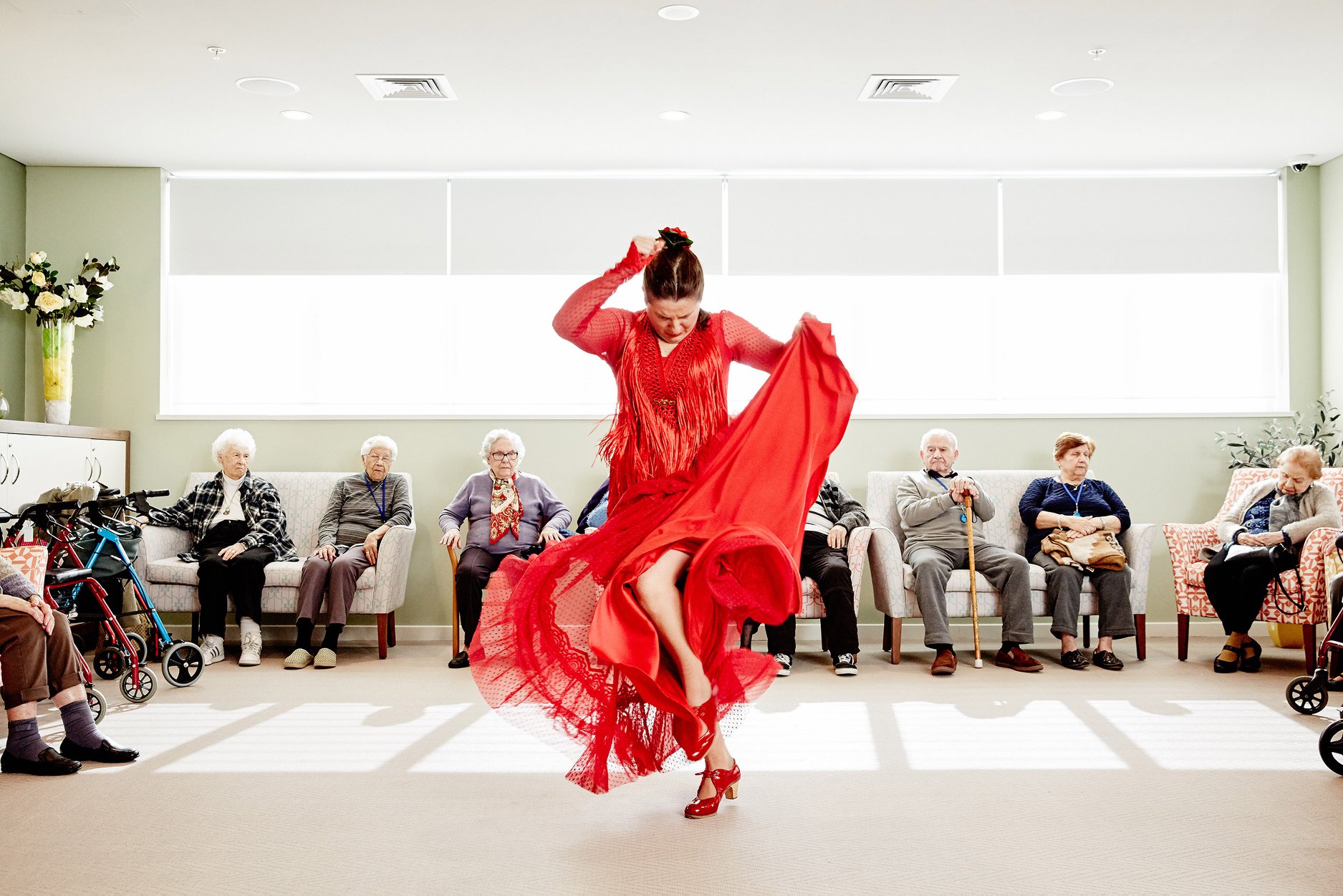
CHRISTIANE CONÉSA-BOSTOCK
Flamenco unsung
After a photograph by Joshua Morris

Here she is, the dancer, afire
in her red dress, frilled and fringed
unfolding the story of nomadic solitude.
It runs in her blood.
Her Flamenco heels
tap, stomp and thump.
In a Rooty Hill nursing home, residents watch –
slippered-feet and swollen ankles –
stationary like their Zimmer frames.
Next to each other, but isolated,
they rest,
eyes
lost in their own migratory exile.
Some had their thinning hair permed.
Some wear their crosses on gold chains.
They came from all over Spain. From Andalucía,
from Galicia where sheets are whitened by the burning sun
from Extremadura with its Roman villages
thick forests and sparkling lakes.
From elsewhere. From over there in La Mancha.
Men came first to work in the sugar-cane fields –
hands slashed and scratched but still able to join in prayer.
Young Martas followed on one-way tickets.
They married. For love. Perhaps.
They sent money back home
learned English –
only to forget it
as time passed –
populated Australia
learned not to shake hands.
Learned to drink beer
and eat pies with tomato sauce.
They never found the secret ingredient
missing from their paellas
stopped expecting their children to speak Spanish.
Christenings. Communions. Weddings.
No one from home attending.
Aerogrammes from mothers stopped arriving.
They browsed quickly through the albums
of their lives. Too quickly.
Slowly
they chose to unsing the Flamenco which had enflamed
their youth – stylish as they were in their Sunday suits.
Here she is, the dancer,
in her red dress, frilled and fringed.
Her Flamenco heels quieten.
The music stops. Silence falls.
The story of nomadic solitude has been told.
As the red moon dances over Sydney
Duende hovers in the Rooty Hill nursing home.
Quixotic dreams are filled with music, passion, emotions.
And the residents remember.
Remember.
* The ‘Martas’ were Spanish women travelling under a migration agreement between the governments of Australia and Spain, supported
by the Catholic Church, called ‘Plan Marta’, which began in 1960 and ended in 1963. They came with a two-year contract to
work as domestic servants in a country that had been sold to them as ‘wonderful’; a place where they could earn their
average monthly salary in a week’s time.
Born in France, Dr Christiane Conésa-Bostock is a Hobart-based poet. Her work has been published in print, and online
in Australia, France, Algeria and USA. Her bilingual collection of poems (English and French) based on Claude Monet’s
paintings entitled Monsieur Monet was published early in 2020.
Joshua Morris is a photographer, winner of Australian Life 2018, semi-finalist of Head On Portrait Prize 2018, and
two time finalist for the National Photographic Portrait Prize. This photograph was originally commissioned by Blacktown Arts.